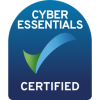When recruiting in these current market conditions, effectively selling the opportunity to a candidate is absolutely crucial in an interview setting. Here, our expert in candidate driven markets, Amy Peoples discusses how to get it right.
Having mainly operated in markets where talented professionals are always in short supply and high demand, I have found that the clients I typically work with know how to “sell” in an interview. They understand that they are being interviewed just as much as the candidate. However, not all markets have had the same experience and some companies / hiring managers have historically enjoyed the luxury of “selecting” from extensive high calibre short lists. The need to sell the business and the opportunity wasn’t always there! If you’re in this camp, and you’re a bit rusty on how to attract the best people to join you, here are some tips on how to structure your interviews in the current market:
First Impressions
Don’t be late, first impressions are just as important to the candidate as they are to you and keeping someone waiting, especially when they might be a little nervous can be very off putting and might come across as rude.
Provide a comprehensive overview of the role
Explain what the role is and why it’s important. The job spec will only tell half the story! Take the time at the beginning to provide the background on how the role has come about and explain it’s importance within the team / business.
Allow time for a less formal conversation
If your process is very formal – i.e. competency driven Q&A or panel style, make sure there is an opportunity for a discussion in a more relaxed setting. The candidate might have questions, and they might want to understand the personal chemistry to ensure it’s the right fit for them. Not only does this allow for a better fit for you both, but it improves the chances of a long term placement.
Describe future progression
Address longer term career progression opportunities. If the role doesn’t offer much within the team, talk about other moves people have made laterally or through promotion elsewhere in the organisation.
Discuss the best bits
Tell the candidate about any benefits offered that you think are unique or very generous. For example, if pension contributions are high, this is a selling point. If you can buy extra holidays, tell the candidate! If your bonus is structured in a way that has guaranteed pay outs at a certain level over the last 5 years – don’t forget to mention this! Be personal rather than generic when it comes to talking about the “great collaborative culture”. What makes the culture?
Ensure it’s a smooth Process
Ensure HR and the hiring managers are aligned in structure / style of the interview and outline the process comprehensively at the start. If your decision will take a week – let the interviewees know. Commit to providing feedback within a timeframe and stick to it. When a candidate isn’t successful, you still want them to come away with a positive view of their experience.
In summary, don’t treat the person being interviewed as though it’s all on them to show you why you should hire them. Remember this whole process should be a 2 way street! You – the hiring manager / the company, are also being interviewed and you should be prepared for this. You want to stand out to your chosen candidate as the company they want to work for. There is a good chance they will receive multiple offers!
If you would like to discuss how best to approach interviews, or if you would like to find out about the market, please reach out to Amy or Georgie at Metier Peoples. [email protected]

